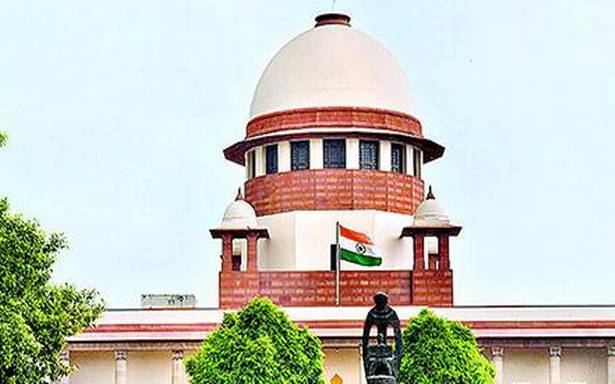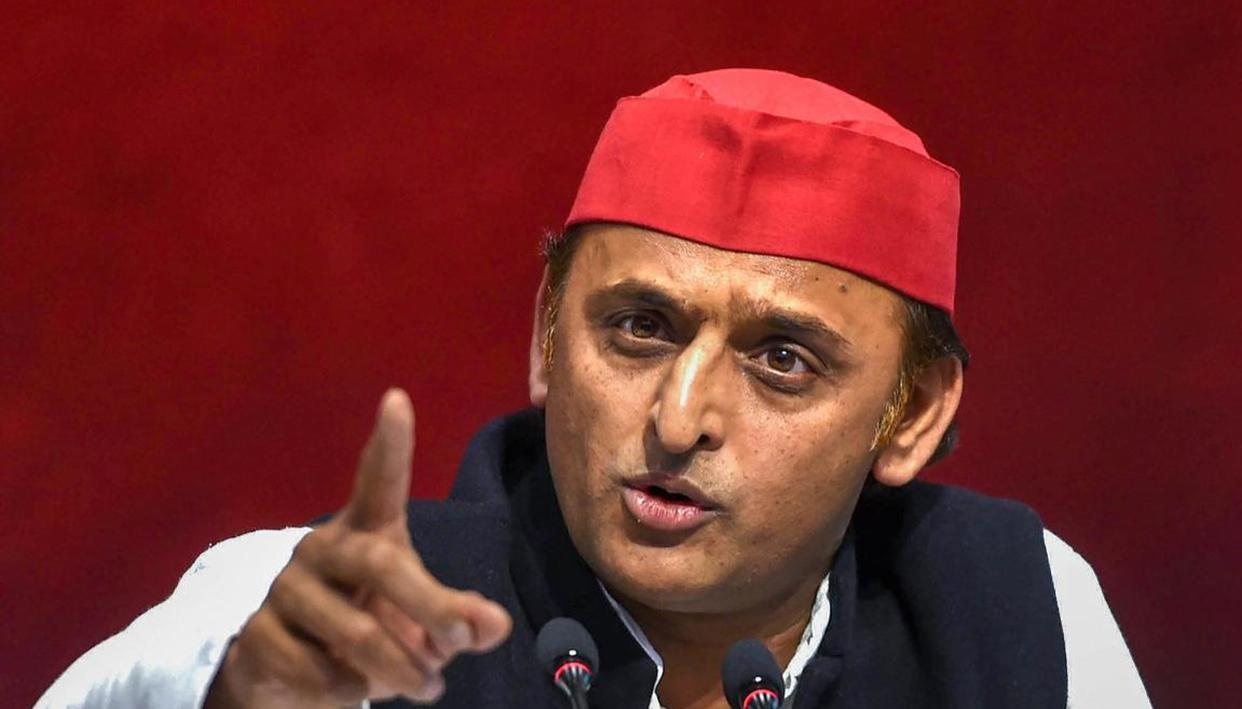Plea Filed in Supreme Court Claiming the encounter of Vikas Dubey as ‘ A Fake Encounter’.
A gangster, Vikas Dubey who was arrested on 9th July 2020, while he along with other police officials were moving in the police jeep which apparently got overturned, police officials claim that he took this as an advantage and tried to run away but, in order to prevent him he was shot three times and was reported dead.
Reacting to this, Advocate Atal Dubey writes a letter to the Chief Justice of India seeking to register his FIR under section 302 against the Uttar Pradesh policeman who were engaged in that operation.
Also, Advocate Ghanshyam Upadhyay had filed a plea in The Supreme Court of India stating that there is a high possibility that Dubey was also be killed in a ‘fake’ encounter after his arrest from Ujjain in Madhya Pradesh a day ago. He also claimed that the UP Police was expected to “concoct the same story of encounter” for Dubey like it did when four of his associates were killed after the 2 July incident.
In order to lower down the rise of fake encounter killings by the police. In the famous case guidelines were issued by The Supreme Court of India through the judgement.
People’s Union for Civil Liberties (PUCL) V. State of Maharashtra. Citation:
Whenever the police is in receipt of any intelligence or tip-off regarding criminal movements or activities pertaining to the commission of a grave criminal offence, it shall be reduced into writing in some form (preferably into case diary) or in some electronic form. Such recording need not reveal details of the suspect or the location to which the party is headed. If such intelligence or tip-off is received by a higher authority, the same may be noted in some form without revealing details of the suspect or the location.
If pursuant to the tip-off or receipt of any intelligence, as above, encounter takes place and firearm is used by the police party and as a result of that, death occurs, an FIR to that effect shall be registered and the same shall be forwarded to the court under Section 157 of the Code without any delay. While forwarding the report under Section 157 of the CrPC, the procedure prescribed under Section 158 of the Code shall be followed.
An independent investigation into the incident/encounter shall be conducted by the CID or police team of another police station under the supervision of a senior officer (at least a level above the head of the police party engaged in the encounter). The team conducting inquiry/investigation shall, at a minimum, seek:
To identify the victim; colour photographs of the victim should be taken;
To recover and preserve evidentiary material, including blood-stained earth, hair, fibers and threads, etc., related to the death;
To identify scene witnesses with complete names, addresses and telephone numbers and obtain their statements (including the statements of police personnel involved) concerning the death;
To determine the cause, manner, location (including preparation of rough sketch of topography of the scene and, if possible, photo/video of the scene and any physical evidence) and time of death as well as any pattern or practice that may have brought about the death;
It must be ensured that intact fingerprints of deceased are sent for chemical analysis. Any other fingerprints should be located, developed, lifted and sent for chemical analysis;
Post-mortem must be conducted by two doctors in the District Hospital, one of them, as far as possible, should be In-charge/Head of the District Hospital. Post-mortem shall be video-graphed and preserved;
Any evidence of weapons, such as guns, projectiles, bullets and cartridge cases, should be taken and preserved. Wherever applicable, tests for gunshot residue and trace metal detection should be performed.
The cause of death should be found out, whether it was natural death, accidental death, suicide or homicide.
A Magisterial inquiry under Section 176 of the CrPC must invariably be held in all cases of death which occur in the course of police firing and a report thereof must be sent to Judicial Magistrate having jurisdiction under Section 190 of the Code.
The involvement of NHRC is not necessary unless there is serious doubt about independent and impartial investigation. However, the information of the incident without any delay must be sent to NHRC or the State Human Rights Commission, as the case may be.
The injured criminal/victim should be provided medical aid and his/her statement recorded by the Magistrate or Medical Officer with certificate of fitness.
It should be ensured that there is no delay in sending FIR, diary entries, panchnamas, sketch, etc., to the concerned Court.
After full investigation into the incident, the report should be sent to the competent court under Section 173 of the CrPC. The trial, pursuant to the chargesheet submitted by the Investigating Officer, must be concluded expeditiously.
In the event of death, the next of kin of the alleged criminal/victim must be informed at the earliest.
Six monthly statements of all cases where deaths have occurred in police firing must be sent to NHRC by DGPs. It must be ensured that the six monthly statements reach to NHRC by 15th day of January and July, respectively…
If on the conclusion of investigation the materials/evidence having come on record show that death had occurred by use of firearm amounting to offence under the IPC, disciplinary action against such officer must be promptly initiated and he be placed under suspension.
As regards compensation to be granted to the dependents of the victim who suffered death in a police encounter, the scheme provided under Section 357-A of the CrPC must be applied.
The police officer(s) concerned must surrender his/her weapons for forensic and ballistic analysis, including any other material, as required by the investigating team, subject to the rights under Article 20 of the Constitution.
An intimation about the incident must also be sent to the police officer’s family and should the family need services of a lawyer/counselling, same must be offered.
No out-of-turn promotion or instant gallantry rewards shall be bestowed on the concerned officers soon after the occurrence. It must be ensured at all costs that such rewards are given/recommended only when the gallantry of the concerned officers is established beyond doubt.
If the family of the victim finds that the above procedure has not been followed or there exists a pattern of abuse or lack of independent investigation or impartiality by any of the functionaries as above mentioned, it may make a complaint to the Sessions Judge having territorial jurisdiction over the place of incident. Upon such complaint being made, the concerned Sessions Judge shall look into the merits of the complaint and address the grievances raised therein.
By Yash Yogesh Naik



Like!! I blog frequently and I really thank you for your content. The article has truly peaked my interest.